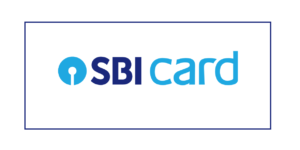Macquarie Upgrades SBI Cards to ‘Outperform’; Stock Hits 52-Week High with 22% Upside
SBI Cards’ stock surged 6% to ₹866 after Macquarie upgraded it to ‘Outperform’ with a ₹1,000 target, implying a 22% upside. The upgrade is driven by stabilizing credit flow, lower interest rates, and improving portfolio quality despite trimmed earnings estimates for FY25-27. Analysts expect declining credit costs, stronger profitability, and stable asset quality to support further stock growth.
CONTENTS:
- Macquarie Upgrades SBI Card to ‘Outperform’; Stock Hits 52-Week High
- SBI Cards Shares Surge 6% as Macquarie Upgrades to ‘Outperform’, Sees 22% Upside

Macquarie Upgrades SBI Cards to ‘Outperform’; Stock Hits 52-Week High with 22% Upside
Macquarie Upgrades SBI Card to ‘Outperform’; Stock Hits 52-Week High
SBI Cards and Payment Services (SBI Card) witnessed a sharp rise in its stock price on February 13, 2025, surging 5.05% intraday to reach a 52-week high of ₹858 on the BSE. The stock also touched ₹858.3 on the NSE, marking its highest level in 18 months.
SBI Card was trading at ₹856 per share, reflecting a 4.8% gain, significantly outperforming the Sensex, which rose by 417 points (0.55%). The stock rally followed an upgrade by global brokerage firm Macquarie, which revised its rating from ‘Neutral’ to ‘Outperform.’ Macquarie also increased its target price for SBI Card from ₹735 to ₹1,000, citing multiple positive industry trends.
Key Factors Behind the Upgrade
- Stabilizing Credit Flow – Macquarie analysts noted that overdue credit card payments are beginning to plateau, providing a sense of stability.
- Improved Portfolio Quality – Vintage delinquencies are declining as SBI Card has been selectively offering credit to borrowers with stronger financial profiles over the past year.
- Favorable Economic Conditions – Lower interest rates, improved liquidity, and recent income tax cuts contribute to a supportive macroeconomic environment. Additionally, the Reserve Bank of India (RBI) has indicated satisfaction with the moderation of unsecured loans.
Given these factors, Macquarie increased its valuation multiple for SBI Card, raising its price-to-book (P/B) ratio from 3.4x to 4.8x and lowering the estimated cost of equity by 100 basis points to 13.5%. The brokerage also adjusted its projected return on assets (RoA) upward by 30 basis points to 4.5%.
SBI Card’s Market Position & Growth Prospects
Macquarie Upgrades SBI Cards: As India’s second-largest credit card issuer, SBI Card holds an 18% market share. A significant portion of its customers (over 70%) come from non-Tier-1 cities, and most are under the age of 45. The company benefits from its association with State Bank of India (SBI), leveraging its vast customer base to drive cross-sales.
Looking ahead, Macquarie expects a decline in slippages and credit costs from Q4FY25 onwards, coupled with higher profit margins as funding costs decrease. This could further drive the stock’s re-rating.
UBS’s Perspective on SBI Card
Macquarie Upgrades SBI Cards: Earlier in January 2025, UBS had upgraded SBI Card’s rating to ‘Neutral’ from ‘Sell,’ citing signs of stabilizing delinquencies and improved underwriting standards. UBS increased its target price from ₹600 to ₹800, anticipating higher return on assets (RoA) and return on equity (RoE) in the coming years.
UBS projects that SBI Card’s net interest margin (NIM) will rise from 11.2% currently to 11.8% by FY27, supported by a gradual increase in the percentage of customers carrying unpaid balances (revolver mix) from 23% to 25%. Additionally, declining interest rates and lower non-performing loans (NPLs) are expected to support margins.
UBS estimates that credit costs will remain high in H2FY25 before decreasing to 7.3% in FY26 and 7.1% in FY27, compared to 8.4% in FY25. Macquarie, however, projects slightly higher credit costs for FY26 and FY27 at 7.6%, though still lower than historical peaks.
With improving credit quality, a stronger financial outlook, and a favorable market environment, both UBS and Macquarie see SBI Card as a stock poised for further growth.
SBI Cards Shares Surge 6% as Macquarie Upgrades to ‘Outperform’, Sees 22% Upside
Macquarie Upgrades SBI Cards: SBI Cards & Payment Services stock rose by 6% to ₹866 on February 13, continuing its upward trend for a second consecutive session. The rally came after global brokerage Macquarie upgraded the stock to ‘Outperform’, raising its target price to ₹1,000, implying a 22.5% upside from the previous close of ₹816 on the NSE. Over the past month, SBI Cards’ stock has climbed 13%, and it has gained 23% since the beginning of the year.
Macquarie’s Outlook on SBI Cards
Macquarie expects credit costs to decline notably in the next two quarters, driven by:
- Falling interest rates
- Improved liquidity
- Potential income tax cuts
- The RBI’s softer stance on unsecured loans
However, the brokerage has reduced its earnings estimates for FY25-27 by 13-15%, considering slower growth in loans, net interest income (NII), and fees. Despite this, lower credit costs have led to an increase in sustainable return on assets (RoA) by 30 basis points to 4.5%.
Financial Performance & Asset Quality
In Q3 FY25, SBI Cards reported: Macquarie Upgrades SBI Cards
- A 30% YoY decline in consolidated net profit, falling to ₹383.2 crore from ₹549.1 crore in Q3 FY24.
- A 1% YoY increase in consolidated revenue from operations, reaching ₹4,767 crore.
- A 3.5% drop in net interest income (NII) to ₹3,790.1 crore from ₹3,926.2 crore.
Despite the decline in earnings, asset quality showed slight improvement:
- Gross NPAs improved to 3.24%, down from 3.27% in the previous quarter.
- Net NPAs remained stable, easing to 1.18% from 1.19%.
- The provision coverage ratio saw a minor dip to 64.3%, compared to 64.4% in the prior quarter.
SBI Cards shares were trading at ₹859, up 5.2% from the previous close on the NSE.
With expectations of improving profitability, declining credit costs, and stable asset quality, analysts see further potential for SBI Cards’ stock in the near term.
Check out TimesWordle.com for all the latest news
You must be logged in to post a comment.